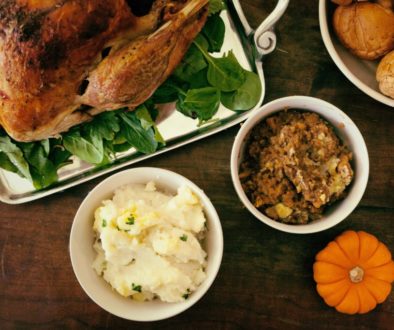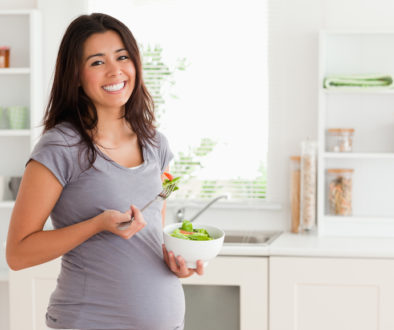How Does My Diet Affect My Baby While Breastfeeding?
It is such a heartwarming feeling to see you return for your post delivery visit and witness the love and concern that you feel for your newborn baby. It continually amazes me how in tune a mother is with her child; it is truly a thing of beauty. There are so many things to think about and concern yourself with that at times it can be overwhelming to be a new mom. I am writing to alleviate concerns over the old wives’ tales regarding foods you should avoid while breast feeding. How many times have you been told not to eat green vegetables, or not too much fruit, or don’t drink coffee, etc., etc.? Rest assured, your diet doesn’t necessarily need to be restricted. In fact, you can eat most anything in moderation. Cultures around the world eat many different types of foods and yet breastfeed their babies without dietary restrictions. The best diet for a nursing mom is fresh fruits, vegetables, lean meats (or beans, if vegetarian), whole grains, and seeds. No specific foods need to be avoided, in general.
However uncommon, you may have a sensitive baby who reacts to a food in a mother’s diet; diarrhea, vomiting, unusual amount of gas, rash, or refusal to feed could be symptoms of a food intolerance. Keeping a food diary for a couple of weeks may help to track down to problem food if your baby has any of these symptoms.
While most babies are not bothered by the cow milk in your diet, a small number of babies cannot tolerate even small amounts. If you find that your baby is fussy or has symptoms mentioned above, your food diary may help determine if there is an association with the milk, cheese, yogurt butter, and ice cream in your diet and you might consider refraining from these foods for a week or two to see if the symptoms improve.
Breastfeeding mothers can drink caffeinated beverages by keeping the caffeine to about 200 mg per day – (a cup of coffee is about 100 mg; a soda is about 40 mg, 8 oz ice tea is about 50 mg). Alcohol seems to be at greatest levels in milk at 1-2 hours after drinking. Multiple drinks on a regular basis can have significant effects on your baby but an occasional drink should have no ill effects. Just as excessive mercury intake is not healthy for you, you should avoid fish which contain higher mercury levels, for your baby’s brain development may be affected.
In summary:
1) Eat a variety of foods that you enjoy. Just take notice of any ill effects your baby may exhibit to certain foods.
2) Don’t overdose on caffeine (that goes for chocolate also), it can be a stimulant and make your baby more irritable. 2-3 caffeinated drinks per day should not be a problem.
3) Limit alcohol to an occasional social drink and if you are still overly concerned time your feeding to more than 2 hours after consuming an alcoholic beverage.
4) Avoid fish with high mercury content (you can visit the FDA website on mercury content in fish)
5) Expose your baby to a wide variety of foods. Some studies indicate that this might be helpful when introducing solid foods.



